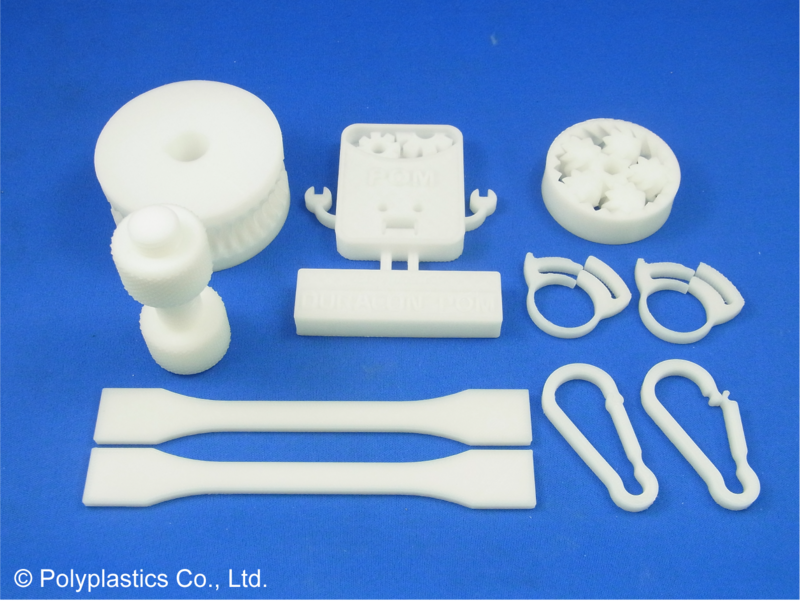
TOKYO, Sept. 13, 2022 — Polyplastics Co., Ltd. has developed three-dimensional (3D) printing technology for production of DURACON (R) polyoxymethylene (POM) products. The technology, known as Material Extrusion (MEX), delivers physical properties close to those of injection-molded articles despite being 3D-printed.
The MEX process can also be applied in preliminary evaluations of physical properties, functions, durability, and other properties without needing a mold, thus helping to accelerate the product development cycle. The MEX process is a typical 3D printing technology that uses thermoplastic resin materials. With resin filaments as the material input, this method produces 3D structures by repeatedly tracing and layering while depositing a melted material extruded through a tiny nozzle. Typically, only amorphous resins or resins with low crystallinity (e.g., ABS, polyamide) had been suitable for use in the MEX 3D printing process. POM’s high crystallinity and rapid rate of crystallization have made it unsuitable for use in the MEX 3D printing process.
To address POM’s limitations, Polyplastics’ MEX 3D printing technology combines a more appropriate selection of POM grades with printing conditions optimized for their crystallization behavior. In addition to accelerating the product development cycle, the MEX technology could also be targeted for low-volume manufacturing of custom products.
Polyplastics is seeking a patent for the DURACON (R) POM 3D printing technology and at the same time the company is developing additional DURACON (R) POM filament materials for use in 3D printing, including reinforced grades. The company is also accepting requests for actual product trial samples.


